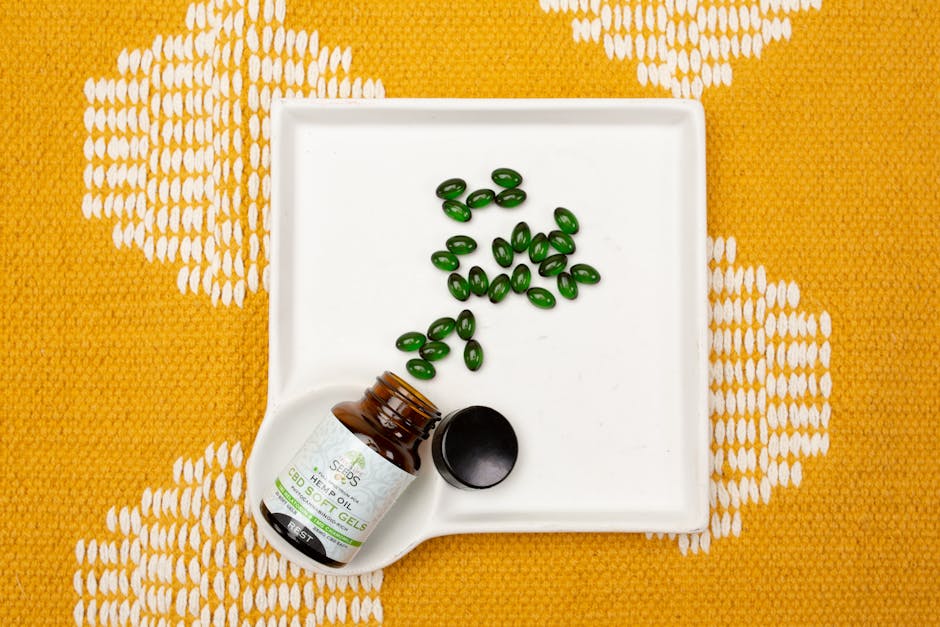
In our fast-paced modern world, maintaining health and wellness has become increasingly important. As we navigate 2025, the emphasis on holistic and natural approaches to well-being is more prominent than ever. Among these, the anti-inflammatory diet has gained significant attention for its potential to enhance overall health by reducing inflammation in the body. Let’s dive into a comprehensive guide that unlocks the 2025 Anti-Inflammatory Diet Agenda, providing you with the insights needed to adopt this natural wellness strategy effectively.
Understanding Inflammation and Its Impact on Health
Inflammation is a natural response by the body’s immune system to injury or harmful stimuli. However, chronic inflammation can lead to a host of health issues, including heart disease, diabetes, arthritis, and even cancer. In 2025, there’s a growing recognition that diet plays a crucial role in managing and preventing chronic inflammation. The anti-inflammatory diet focuses on incorporating foods that can help reduce inflammation and promote overall health.
Key Components of the Anti-Inflammatory Diet
- Fruits and Vegetables: Rich in antioxidants and vitamins, a diverse array of fruits and vegetables should be the cornerstone of your diet. Think leafy greens, berries, and colorful vegetables like bell peppers and carrots.
- Healthy Fats: Incorporate sources of omega-3 fatty acids, such as salmon, walnuts, and flaxseeds. Olive oil is another excellent choice for its anti-inflammatory properties.
- Whole Grains: Opt for whole grains like brown rice, quinoa, and oats, which provide fiber and essential nutrients while reducing inflammation.
- Lean Proteins: Choose lean sources of protein such as chicken, turkey, and plant-based options like beans and lentils. These foods help build and repair tissues without contributing to inflammation.
- Herbs and Spices: Turmeric, ginger, and garlic are potent anti-inflammatory agents that should be included in your diet regularly.
Foods to Avoid or Limit
While it’s important to focus on what you should eat, it’s equally crucial to be mindful of foods that can exacerbate inflammation. In 2025, dietary guidelines highlight the importance of limiting:
- Processed Foods: These often contain additives and trans fats, which can increase inflammation.
- Sugar: Excessive sugar intake is linked to inflammation, so it’s best to limit sugary snacks and beverages.
- Refined Carbohydrates: Foods like white bread and pastries can contribute to inflammation.
- Red and Processed Meats: High in saturated fats, these can increase inflammatory markers in the body.
Lifestyle Factors Complementing the Diet
Alongside dietary changes, several lifestyle factors can enhance the benefits of an anti-inflammatory diet:
- Regular Exercise: Engaging in regular physical activity helps reduce inflammation and improve heart health.
- Stress Management: Techniques such as meditation, yoga, and deep breathing can help manage stress, which is known to contribute to inflammation.
- Adequate Sleep: Quality sleep is crucial for allowing the body to repair and reduce inflammation.
- Hydration: Drinking plenty of water helps flush out toxins and supports overall health.
Scientific Insights: Why the Anti-Inflammatory Diet Works
Scientific research continues to support the benefits of an anti-inflammatory diet. In 2025, studies emphasize the role of natural foods in modulating inflammatory pathways. Omega-3 fatty acids, for instance, have been shown to reduce C-reactive protein (CRP), a key marker of inflammation. Similarly, antioxidants found in fruits and vegetables help neutralize free radicals, preventing cellular damage that can trigger inflammation.
A Sample Anti-Inflammatory Meal Plan
To help you get started, here’s a sample meal plan that incorporates the principles of the anti-inflammatory diet:
- Breakfast: Overnight oats topped with berries and a sprinkle of chia seeds.
- Lunch: Grilled salmon salad with mixed greens, cherry tomatoes, and an olive oil dressing.
- Snack: A small handful of walnuts and an apple.
- Dinner: Stir-fried tofu with broccoli, bell peppers, and brown rice.
- Dessert: Dark chocolate (moderate intake) with a few slices of orange.
Common Misconceptions About the Anti-Inflammatory Diet
As you embark on this wellness journey, it’s important to dispel some myths surrounding the anti-inflammatory diet:
- Myth: It’s too restrictive. Truth: The diet encourages a variety of nutrient-dense foods, offering plenty of delicious options.
- Myth: It’s a quick fix. Truth: While benefits can be seen over time, it should be part of a long-term lifestyle change.
- Myth: It’s expensive. Truth: Many anti-inflammatory foods are affordable, especially when bought in bulk or in-season.
FAQ
Q: Can the anti-inflammatory diet help with weight loss?
A: Yes, the diet can aid weight loss by promoting healthier food choices and reducing processed, high-calorie foods.
Q: Is the anti-inflammatory diet suitable for everyone?
A: While generally beneficial, those with specific medical conditions should consult a healthcare provider before making significant dietary changes.
Q: How soon can I expect to see results?
A: Benefits vary, but many individuals report feeling improvements in inflammation-related symptoms within a few weeks.
Q: Are supplements necessary on this diet?
A: Whole foods are the primary focus, but supplements like omega-3s can be considered if dietary intake is insufficient.
Q: Can I eat out while following this diet?
A: Yes, many restaurants offer dishes that align with an anti-inflammatory approach. Opt for grilled options, salads, and dressings on the side.
Embracing a Healthier Future
As we unlock the potential of the 2025 Anti-Inflammatory Diet Agenda, it becomes clear that embracing this holistic approach offers more than just a dietary change—it’s a commitment to a healthier, more vibrant life. By focusing on whole, nutritious foods and complementing them with mindful lifestyle practices, you can reduce inflammation and enjoy the benefits that come with it. Remember, the path to wellness is a journey, and each positive choice you make brings you closer to a healthier future.


